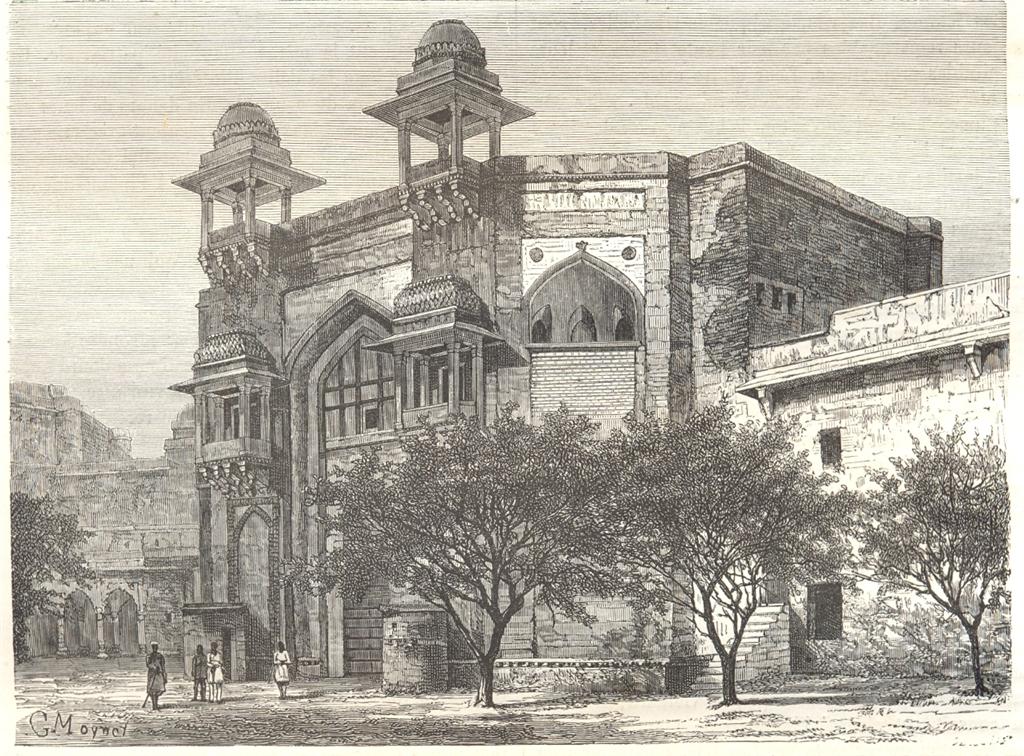FWP:
SETS == MAGAR
SPEAKING: {14,4}
The complexities of ḥarīf work well here (see the definition above). It can mean a peer, comrade, equal; or an enemy, rival, antagonist-- maybe a 'frenemy'. Either way, it's someone or something who can suitably be juxtaposed to the thing in question-- can be a companion to it, or can confront or withstand it. The thing in question is the 'secret of love', and the only possible ḥarīf for it seems to be 'doors and walls'. Anybody else will break down and tell the secret, or will be burnt out by the effort of containing it, or will perhaps helplessly become a lover himself (as in {43,1}). But 'doors and walls' are perhaps made of tougher stuff.
Nazm takes a dim view of talking to doors and walls. After going through this ghazal, it's hard to agree with him. Doors and walls have become the lover's reliable companions and intimates, reacting to and even sharing his passion. Why not imagine the lover as talking to his doors and walls? After all, why would he not? The verse tells us clearly that no person in this world/age is capable of handling the powerful secrets of passion, except the (personified?) doors and walls, making them the ideal confidants.
Unless, of course, we read magar not as 'but, save for', but as 'perhaps, possibly' (see the definition above). In that case, the verse simply recognizes the doors and walls as possible candidates for the role of confidant. They might or might not turn out to be suitable-- but while nobody and nothing else is suitable at all, they at least are still in the running.
The remarkable closural force and rueful, ironic, wryly humorous
tone of this closing-verse
make it a real delight. How better to wrap up a ghazal about doors and walls?
Once you've read this verse, you can't imagine how else the job could possibly
have been done.

Nazm:
That is, don't tell the secret of love to anyone else, because no one else in the world except doors and walls is trustworthy. And to talk to doors and walls is a futile action; the result is that you should never let the secret of love pass your lips. (54)
== Nazm page 54